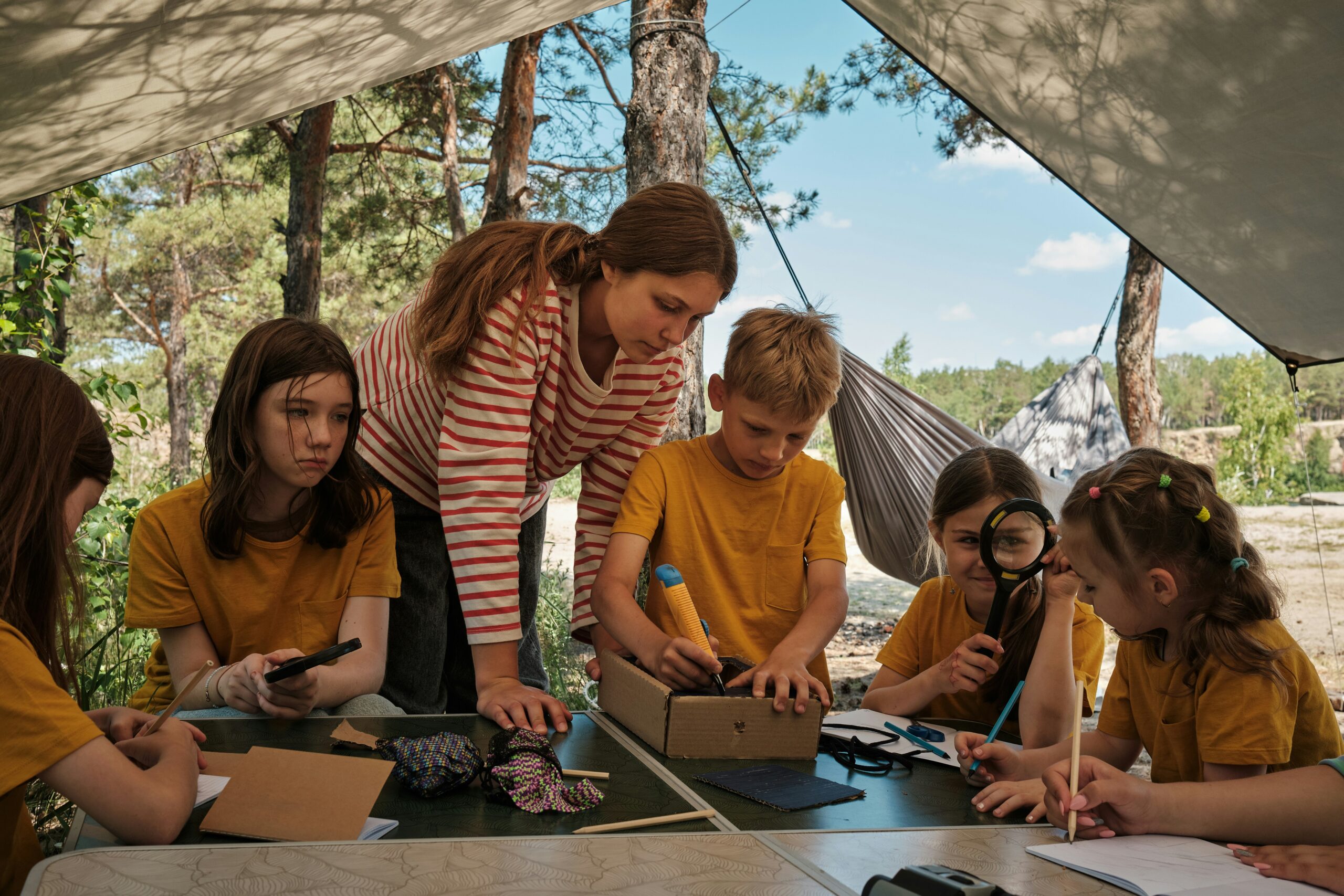
Leadership roles in youth camps play a crucial role in shaping young individuals’ minds, hearts, and spirits. These roles teach responsibility and provide a platform for campers to develop essential life skills. Camps offer a unique environment where children and teens can explore leadership opportunities in a safe and supportive space, learning through experience rather than textbooks. Through these experiences, campers cultivate confidence, teamwork, and spiritual growth, which will guide them throughout their lives.
By participating in youth camps, young leaders also gain practical skills beyond the campgrounds. Planning activities, leading team projects, and resolving conflicts all contribute to building strong communication and problem-solving abilities. Moreover, these experiences instill a sense of accountability and empathy, which helps campers connect with others and understand diverse perspectives. Leadership roles in youth camps are more than titles—they are transformative opportunities that lay the foundation for lifelong personal and spiritual development.
Encouraging Spiritual Development Through Leadership
One of the most impactful aspects of leadership roles in youth camps is the focus on spiritual development. Camp leaders often mentor younger campers, helping them explore moral values, ethical decision-making, and personal beliefs. This guidance allows campers to connect with their inner selves and develop a stronger sense of purpose. Spiritual development encourages reflection, mindfulness, and compassion, fostering a supportive community where everyone feels valued.
Furthermore, structured activities, such as group discussions, nature retreats, and reflective exercises, enhance spiritual growth while teaching leadership skills. Leaders model behaviors that emphasize respect, honesty, and patience, inspiring campers to emulate these values daily. Camps that integrate spirituality into leadership roles help children recognize the importance of empathy, kindness, and ethical responsibility, preparing them to contribute positively to society.
Building Confidence and Personal Growth
Leadership roles in youth camps also significantly enhance personal growth and self-confidence. When campers take on responsibilities, such as guiding group activities or assisting with planning events, they face challenges that push them outside their comfort zones. These challenges foster resilience, problem-solving abilities, and decision-making skills, empowering young leaders to trust themselves and their judgment.
Campers develop emotional intelligence through consistent practice and mentorship, learning to navigate interpersonal relationships and manage stress. This growth strengthens their self-esteem and encourages them to pursue future goals with determination. Youth camp leaders also provide positive reinforcement, creating an environment where campers feel safe to experiment, fail, and try again, which is essential for holistic development.
Promoting Teamwork and Collaboration
Leadership roles in youth camps teach campers the importance of teamwork and collaboration. Many camp activities require leaders to coordinate with peers, delegate responsibilities, and motivate team members. These experiences demonstrate that effective leadership is not about control but guiding, supporting, and empowering others.
Additionally, camps provide a platform for multicultural interaction, allowing young leaders to collaborate with peers from diverse backgrounds. This exposure helps campers understand different perspectives, communicate effectively, and develop mutual respect. As a result, leadership in youth camps cultivates cooperation, negotiation skills, and conflict resolution—skills that are invaluable in school, work, and community settings.
Mentorship and Role Modeling
Youth camp leaders are role models for younger campers, illustrating how positive behavior and spiritual integrity can influence others. These mentors demonstrate accountability, empathy, and leadership, inspiring others to adopt similar attitudes. Campers learn the value of integrity and responsibility in everyday life by witnessing their leaders’ dedication and ethical conduct.
Moreover, mentorship provides leaders with an opportunity to refine their own leadership style. By guiding peers and younger campers, they learn to communicate effectively, motivate others, and adapt to different personalities. Mentorship within youth camps creates a cycle of growth, where both leaders and campers benefit from mutual support and encouragement.
Encouraging Lifelong Skills and Values
Youth camp leadership roles leave a lasting impact by instilling essential skills and values that extend beyond the camp experience. Campers learn time management, goal setting, and organizational skills while developing emotional resilience. They internalize lessons on empathy, teamwork, and ethical decision-making, which shape their behavior in school, work, and personal life.
Furthermore, these experiences ignite a lifelong interest in community service and personal development. Campers who experience leadership firsthand are likelier to take on initiatives, volunteer, and contribute positively to society. Therefore, leadership roles in youth camps are not only transformative during the camp period but also set the stage for a future filled with personal, professional, and spiritual success.
Creating a Supportive Environment for Growth
The success of leadership programs in youth camps relies on creating a supportive and encouraging environment. Staff, mentors, and senior leaders play a critical role in fostering this environment by providing guidance, feedback, and opportunities for skill development. A supportive environment ensures every camper feels valued, safe, and empowered to take on leadership roles.
Additionally, camps that emphasize reflection and feedback encourage leaders to recognize their strengths and areas for improvement. This process cultivates self-awareness and continuous growth, both essential qualities for personal development and spiritual maturity. By prioritizing support and guidance, youth camps maximize the impact of leadership roles and help campers thrive.
The Transformative Power of Leadership Roles in Youth Camps
Youth camp leadership roles offer more than structured activities or temporary responsibilities—they shape character, spirituality, and personal growth. These roles equip young individuals with the skills and values they need to succeed by fostering confidence, teamwork, and mentorship. Leadership experiences encourage self-discovery, ethical reflection, and emotional intelligence, creating a foundation for lifelong learning and personal fulfillment.
Youth camps are unique spaces where leadership, spirituality, and personal growth intersect, providing meaningful opportunities for young individuals to flourish. Through guidance, mentorship, and real-world challenges, campers develop a sense of purpose, resilience, and empathy that will carry them far beyond the campgrounds. Investing in leadership roles in youth camps is an investment in the next generation of compassionate, confident, and capable leaders.